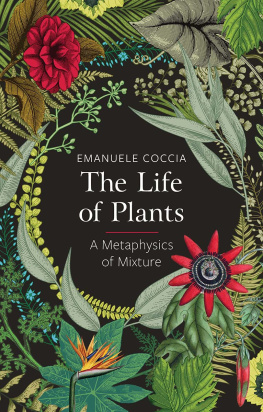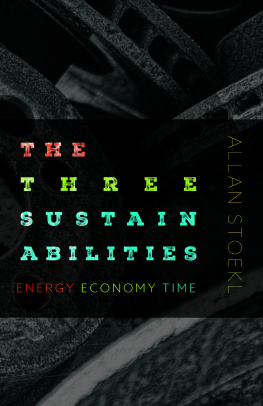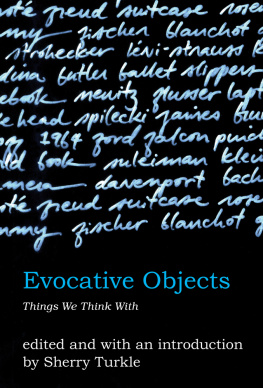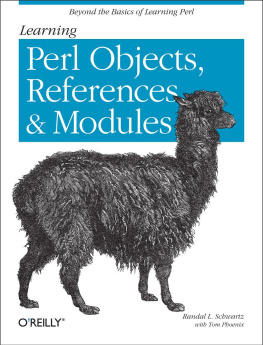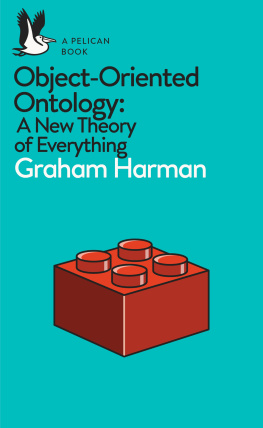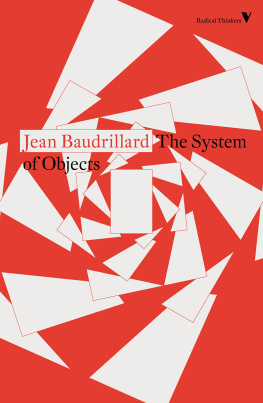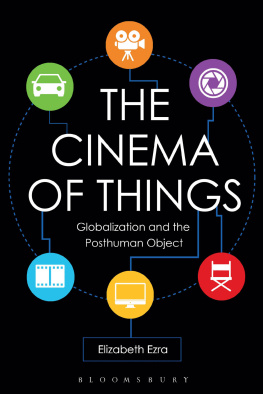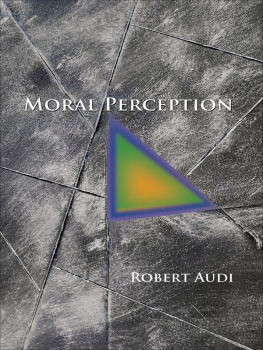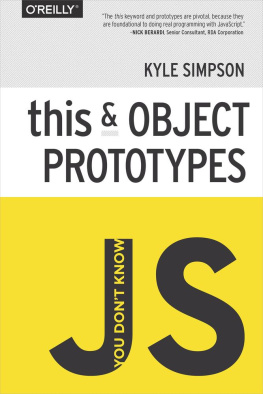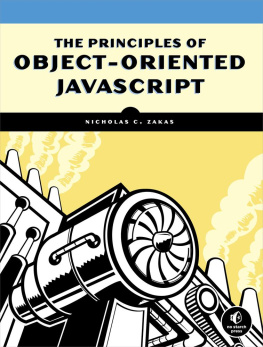GOODS

Copyright 2018 Fordham University Press
All rights reserved. No part of this publication may be reproduced, stored in a retrieval system, or transmitted in any form or by any meanselectronic, mechanical, photocopy, recording, or any otherexcept for brief quotations in printed reviews, without the prior permission of the publisher.
Goods was originally published in French as La Bien dans les choses by Editions Payot & Rivages in 2013 and in Italian as Il Bene nelle cose by Il Mulino, in 2014. 2013 Emanuele Coccia; 2013 Editions Payot & Rivages.
The translation of this work has been funded by SEPS
S EGRETARIATO E UROPEO PER LE P UBBLICAZIONI S CIENTIFICHE

Via Val dAposa 7 - 40123 Bologna - Italy
seps@seps.it - www.seps.it
Fordham University Press has no responsibility for the persistence or accuracy of URLs for external or third-party Internet websites referred to in this publication and does not guarantee that any content on such websites is, or will remain, accurate or appropriate.
Fordham University Press also publishes its books in a variety of electronic formats. Some content that appears in print may not be available in electronic books.
Visit us online at www.fordhampress.com.
Library of Congress Control Number: 2018934476
Printed in the United States of America
20 19 185 4 3 2 1
First edition
CONTENTS
We used to think that we only had societies and governments because we had language. We used to think that we were only political beings because we could speak. In the language of ancient Greece, a person is a zoon politikon only because she is a zoon logon echon . This opinion has been widespread in modern political philosophy and was prevalent among the ancient Greeks. In one of the first political science treatises produced by Western culture, Aristotle remarks that if the polis (the state or city) belongs among the things that exist by nature, and if man is by nature a political animalmuch more political than any kind of bee or any herd animalits because man alone among the animals has language. Its through language that we can have a perception of good and bad and just and unjust and other things [of this sort]. Only if we share this kind of judgment is it possible to conceive of a cityor, for that matter, of a household.
Roman civilization gave a special name to languages power to establish a political community: ius , law. The term referred not to language in general, but to a series of formulas, a collection of stereotypical expressions that were treated as the formal source of social life. What we have since then called the law is nothing more than socially efficacious language, which is thought to be capable of shaping human life through its very existence and pronouncement. Living under the rule of law means living in a society that has cordoned off a number of socially efficacious words and discourses: it has isolated them physically, separating them from other words by locating them within the bounds of the law. The rule of law is the public and collective worship of these words, a worship that recognizes in them a form of secular sacredness.
Modern political philosophy has specified that it is not language or the law in general, but a special kind of linguistic act, a special kind of legal institution, which make a state possible: what we call contracts (or constitutions). A state can arise thanks to a particular type of promise that concerns not just a limited group but the totality of individuals; a state puts together each individuals power.
Though these observations may seem obvious, we have never had a clear idea of why or how language would be able to make us by nature more political than bees or herd animals. It is no easy matter to explicate Aristotles position clearly. And the power of the law is also far from obvious. The sets of words that we collect into law books have no special formal features: they do not differ from other words in terms of language and grammar, nor are they distinct in meaning or style. What transforms them into the object of collective worship is an extensive set of myths that justifies their existence and is often part of the legislative corpus. The most famous examples of this phenomenon come from the Jewish and Christian legal traditions. Most of the stories in the two major law books of antiquity, the Jewish Tanakh and the Christian Bible, are myths that try to establish that law can only exist in the guise of a Word and that the true and holy community is the one based on the worship of the word, which is represented in one case as a sacred book and in the other as embodied in a Messiah. Norms not only have to be made out of words, but they also represent the Word par excellence, the one that embodies the (divine) rationality responsible for the creation of the universe. The myth of creation is a juridical one: it proves that there is a perfect continuity between the juridical techne and the ontogenic one, and a perfect coincidence of subjects in the legislator and the producer of realityand reality is the object of the law.
It is not enough to say that the idea that our political life is founded on language is a myth. Levi Strauss has taught us that every myth should be read as the contrastive transformation of another one: no myth has meaning in itself, beyond its opposition to another myth. In Jewish-Christian legal mythology, the idea that the law takes shape in language arises in direct opposition to the idea of rules embodied in images or objects. The Word is the universal antidote to the normative power of imagesto what I propose to call iconic normativity, condemned by the theological tradition as idolatry.
The influence of the Jewish and Christian legal tradition on the modern political experience is much broader than historians usually like to admit. Our societies still harbor an unreflective suspicion of images and their founding role in political life. When Guy Debord introduces the social relation among people mediated by imagesthat is, the power of images to produce society, establishing the foundation of our political life as a spectacle, or as the concrete inversion of life, the autonomous movement of the non-livinghe is simply giving voice to this ancestral myth.
What if this other, now obscure tradition was right? What if images were not a symptom of our societys alienation, as the French moralist tradition from Rousseau to Virilio has always thought, but were rather the conditions of possibility for our political life? I propose the term micro-ontology to describe the way politics would look if we recognized that we can build what we call a state, a city, or an institutionand along with them, we can access the political spherenot through language but through images, in all their formsthat is, through our sensible life. To use the language of our legal and political culture, I would put it like this: what would life be like if we had social pictures instead of social contracts? Or, to put it more provocatively: what would our political life look like if the Messiah, the divine king who was supposed to embody the law, had left us not a biography but a documentary film or a collection of icons? Due to constraints of space, my remarks here will be extremely brief and rudimentarily elliptic. I will proceed in three steps. First, I will describe the consequences of this idea (that is, of the idea that we are zoa politika only because we can produce sensory experiencesnot only pictures, but sounds, smells, all kind of sensible life). Next, I will describe what an iconic normativity would look like. What would a form of law that consists only of images look like? Finally, I will consider what the political life of the individual looks like when norms and political life are made from images. My general hypothesis is that an iconic politics is already at work in contemporary Western societies.
Next page

